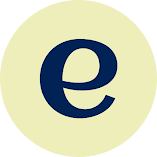The United States, the world's largest donor to the World Health Organization (WHO), has resisted proposals to make the agency more autonomous. Doubts have been raised about long-term support for
According to the British news agency Reuters, the document, published online on January 4, states that the proposal for sustainable financing was put forward by the WHO Working Group, which includes a permanent annual partnership of each member state. Will increaseThe plan is part of a broader reform process triggered by the corona virus epidemic, which has highlighted the limitations of the WHO's power to intervene immediately in a crisis.
However, US officials told Reuters that the government was opposed to the reforms because of concerns about the WHO's ability to deal with future threats, including from China.
Instead, the United States is pushing for the creation of a separate fund that would be directly controlled by donors and could provide financial assistance to prevent health emergencies and control epidemics.
The four European officials involved in the talks, who declined to be named, confirmed the US opposition, but the US government did not immediately comment.
The document states that the published proposal calls for a gradual increase in the mandatory cooperation of member countries from 2024.
The WHO's core budget aims to fight epidemics around the world and strengthen the healthcare system. It raises an additional ڈالر 1 billion a year to address specific global challenges such as tropical diseases and influenza.
Proponents say the current reliance on voluntary funding from member states and charities such as the Bill & Melinda Gates Foundation is forcing the WHO to focus on the priorities set by the funders and when things go wrong. So that enables him to criticize the members.
An independent panel on epidemics set up to advise on WHO reform, considering the current system a "major threat to the integrity and independence of the WHO", They demanded a huge increase in the mandatory fees up to 100 percent.
Three European officials say the EU's top donors, including Germany, support the project, along with most African, South Asian, South American and Arab countries.
He said the proposal would be discussed at a meeting of the WHO's executive board next week, but no agreement was expected.
The WHO confirmed that there was currently no consensus among member states, and said that talks were likely to continue until the World Health Organization's annual meeting in May.





.jpg)